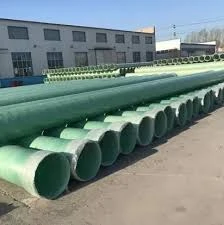
-
 Afrikaans
Afrikaans -
 Albanian
Albanian -
 Amharic
Amharic -
 Arabic
Arabic -
 Armenian
Armenian -
 Azerbaijani
Azerbaijani -
 Basque
Basque -
 Belarusian
Belarusian -
 Bengali
Bengali -
 Bosnian
Bosnian -
 Bulgarian
Bulgarian -
 Catalan
Catalan -
 Cebuano
Cebuano -
 China
China -
 China (Taiwan)
China (Taiwan) -
 Corsican
Corsican -
 Croatian
Croatian -
 Czech
Czech -
 Danish
Danish -
 Dutch
Dutch -
 English
English -
 Esperanto
Esperanto -
 Estonian
Estonian -
 Finnish
Finnish -
 French
French -
 Frisian
Frisian -
 Galician
Galician -
 Georgian
Georgian -
 German
German -
 Greek
Greek -
 Gujarati
Gujarati -
 Haitian Creole
Haitian Creole -
 hausa
hausa -
 hawaiian
hawaiian -
 Hebrew
Hebrew -
 Hindi
Hindi -
 Miao
Miao -
 Hungarian
Hungarian -
 Icelandic
Icelandic -
 igbo
igbo -
 Indonesian
Indonesian -
 irish
irish -
 Italian
Italian -
 Japanese
Japanese -
 Javanese
Javanese -
 Kannada
Kannada -
 kazakh
kazakh -
 Khmer
Khmer -
 Rwandese
Rwandese -
 Korean
Korean -
 Kurdish
Kurdish -
 Kyrgyz
Kyrgyz -
 Lao
Lao -
 Latin
Latin -
 Latvian
Latvian -
 Lithuanian
Lithuanian -
 Luxembourgish
Luxembourgish -
 Macedonian
Macedonian -
 Malgashi
Malgashi -
 Malay
Malay -
 Malayalam
Malayalam -
 Maltese
Maltese -
 Maori
Maori -
 Marathi
Marathi -
 Mongolian
Mongolian -
 Myanmar
Myanmar -
 Nepali
Nepali -
 Norwegian
Norwegian -
 Norwegian
Norwegian -
 Occitan
Occitan -
 Pashto
Pashto -
 Persian
Persian -
 Polish
Polish -
 Portuguese
Portuguese -
 Punjabi
Punjabi -
 Romanian
Romanian -
 Russian
Russian -
 Samoan
Samoan -
 Scottish Gaelic
Scottish Gaelic -
 Serbian
Serbian -
 Sesotho
Sesotho -
 Shona
Shona -
 Sindhi
Sindhi -
 Sinhala
Sinhala -
 Slovak
Slovak -
 Slovenian
Slovenian -
 Somali
Somali -
 Spanish
Spanish -
 Sundanese
Sundanese -
 Swahili
Swahili -
 Swedish
Swedish -
 Tagalog
Tagalog -
 Tajik
Tajik -
 Tamil
Tamil -
 Tatar
Tatar -
 Telugu
Telugu -
 Thai
Thai -
 Turkish
Turkish -
 Turkmen
Turkmen -
 Ukrainian
Ukrainian -
 Urdu
Urdu -
 Uighur
Uighur -
 Uzbek
Uzbek -
 Vietnamese
Vietnamese -
 Welsh
Welsh -
 Bantu
Bantu -
 Yiddish
Yiddish -
 Yoruba
Yoruba -
 Zulu
Zulu
fiberglass fuel tank
The Advantages of Fiberglass Fuel Tanks
In the world of fuel containment and transportation, fiberglass fuel tanks have emerged as a robust alternative to traditional materials like steel and plastic. Increasingly popular in various industries, including automotive, marine, and aviation, fiberglass fuel tanks offer numerous advantages that make them a preferred choice for many applications. This article will explore the key benefits of fiberglass fuel tanks and why they are gaining traction among manufacturers and consumers alike.
Durability and Corrosion Resistance
One of the most significant advantages of fiberglass fuel tanks is their exceptional durability. Unlike metal tanks, which can corrode over time due to exposure to fuel and other environmental factors, fiberglass is inherently resistant to corrosion. This characteristic is particularly important in settings where tanks are exposed to moisture, chemicals, and varying temperatures. The longevity of fiberglass tanks means that they require less frequent replacement, which can lead to cost savings over the long term.
Lightweight Design
Fiberglass fuel tanks are considerably lighter than their metal counterparts. This weight reduction can make a substantial difference in various applications, particularly in the automotive and marine sectors, where every ounce counts. In vehicles, a lighter fuel tank can contribute to improved fuel efficiency, as the overall weight of the vehicle is reduced. Similarly, in marine applications, lighter tanks can enhance vessel performance and handling.
Flexibility in Design
Another advantage of fiberglass fuel tanks is the flexibility they offer in terms of design and manufacturing. Fiberglass can be molded into a variety of shapes and sizes, allowing for custom solutions to fit specific requirements. This adaptability can be particularly beneficial in industries where space is constrained or where unique configurations are needed. Manufacturers can create tanks that maximize storage capacity while minimizing the physical footprint, which can be a crucial factor in many applications.
fiberglass fuel tank

Environmental Impact
With increasing awareness of environmental issues, the choice of materials for fuel containment has become more critical. Fiberglass fuel tanks are often considered more environmentally friendly compared to metal tanks, primarily because they do not corrode, which can lead to leaks and contamination of surrounding soil and water. Additionally, fiberglass tanks are typically constructed with closed system resins that release fewer volatile organic compounds (VOCs) during production, thereby contributing to a reduced carbon footprint.
Safety Features
Safety is always a paramount concern in fuel storage and transportation. Fiberglass fuel tanks inherently provide a level of safety due to their non-conductive properties. This characteristic reduces the risk of static electricity buildup, which can be a significant hazard when dealing with flammable substances. Furthermore, the design and manufacturing process of fiberglass tanks often includes safety features such as multiple layers of reinforcement, which adds to their overall structural integrity.
Cost-Effectiveness
While the initial cost of fiberglass fuel tanks may be higher than traditional options, their long-term cost-effectiveness cannot be overlooked. The durability and corrosion resistance of fiberglass lead to lower maintenance and replacement costs over time. Additionally, the potential for increased fuel efficiency in vehicles and vessels with lighter tanks can further justify the initial investment.
Conclusion
In conclusion, fiberglass fuel tanks present a host of advantages that make them an appealing choice for various applications. Their durability, lightweight design, flexibility, environmental benefits, safety features, and cost-effectiveness position them as a superior alternative to traditional fuel storage options. As industries continue to prioritize efficiency and sustainability, the adoption of fiberglass fuel tanks is likely to rise, marking a significant shift in how we approach fuel containment and transportation. With these benefits in mind, it is clear that fiberglass fuel tanks are reshaping the landscape of fuel storage solutions for the future.









